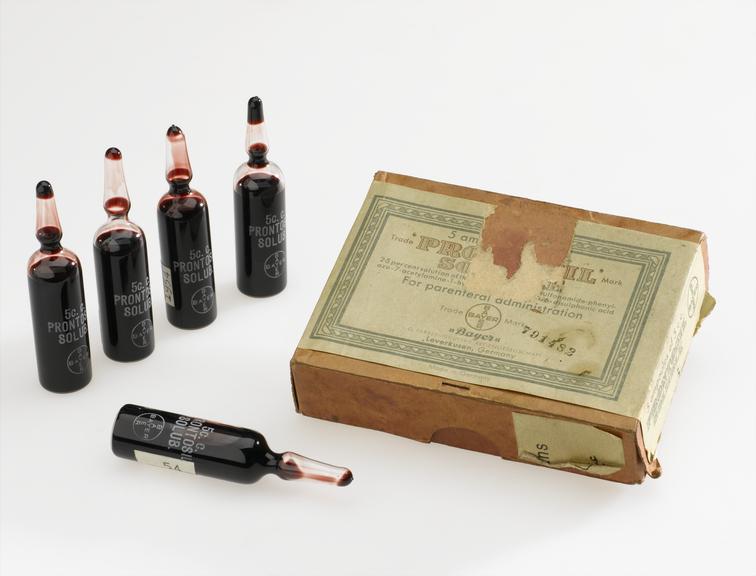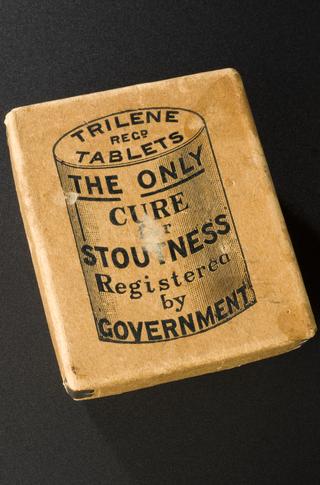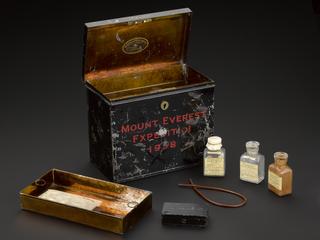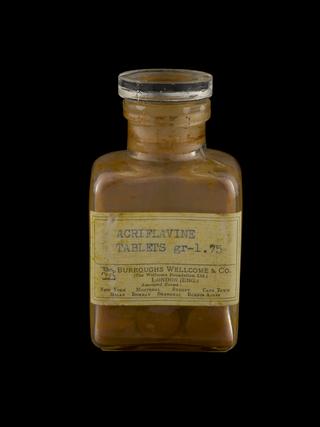Ampoule of Pronotsil, Germany, 1936-1940
Ampoule of Prontosil (1 of 5), by Bayer, Germany, 1936-1940, free sample, probably for Middle Eastern market
More
Prontosil was the first commercial sulphonamide antibacterial, available from 1935 onwards. For the first time some of the serious problems caused by bacteria, such as blood infections, tonsillitis and puerperal fever, could be cured. At first, there was scepticism surrounding the drug but it was embraced wholeheartedly after some famous success stories. Prontosil started a race to find similar chemicals to tackle other infections.
It is believed that these ampoules, which are used to inject the antibiotic, were intended for use in the Middle East during the Second World War. The label on the base of the box reads “Sample for Physicians NOT FOR SALE” and is translated into Arabic.



